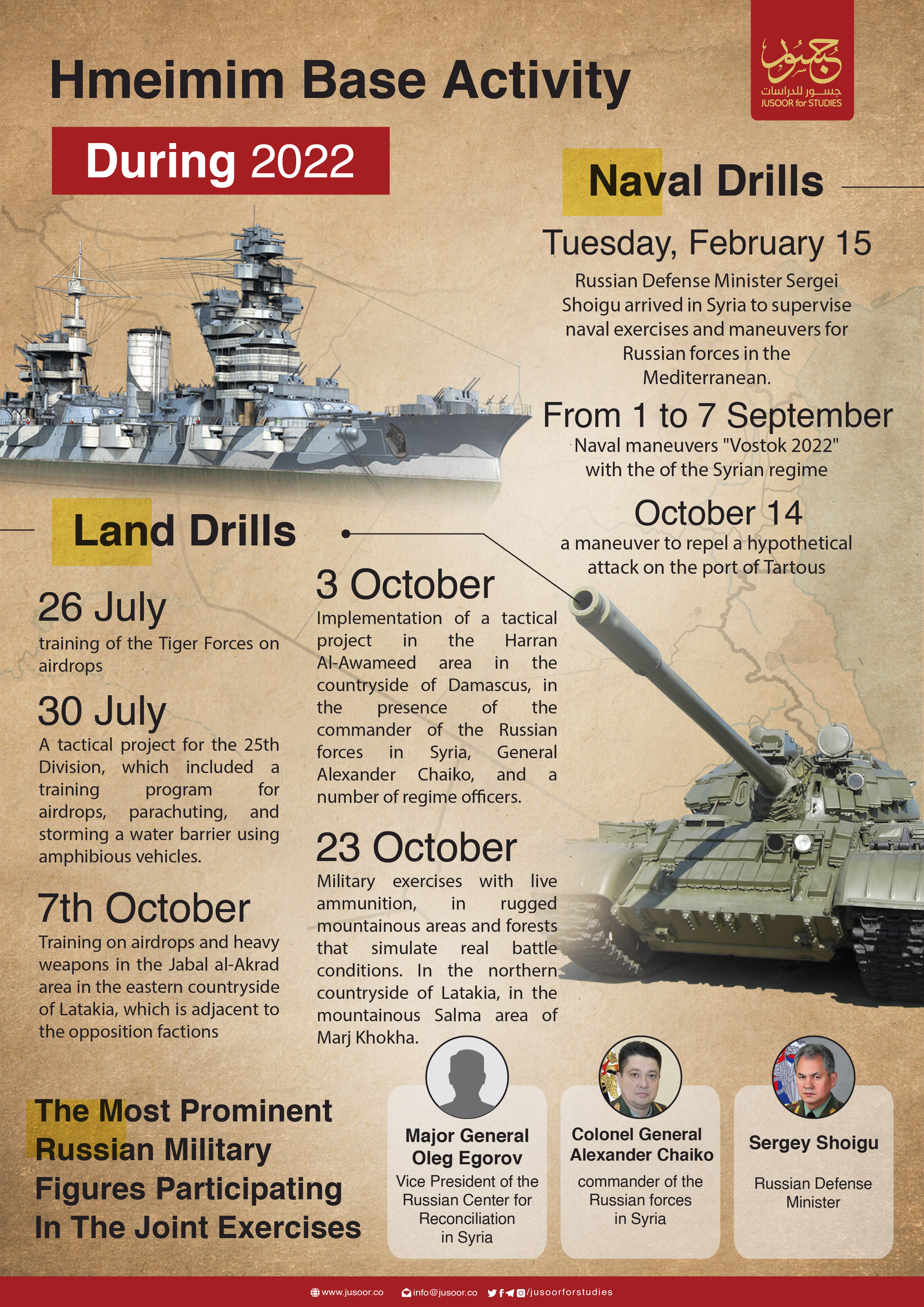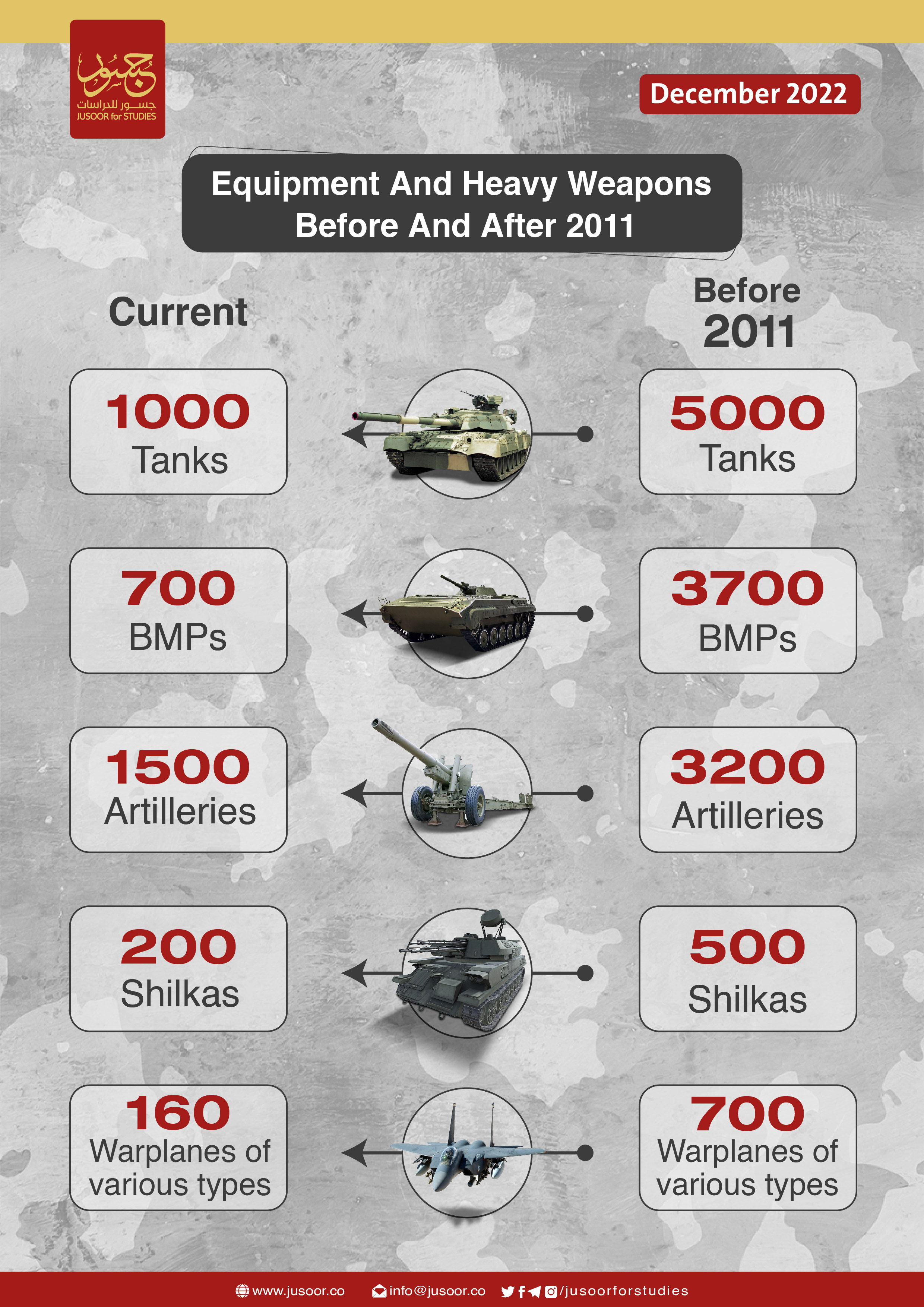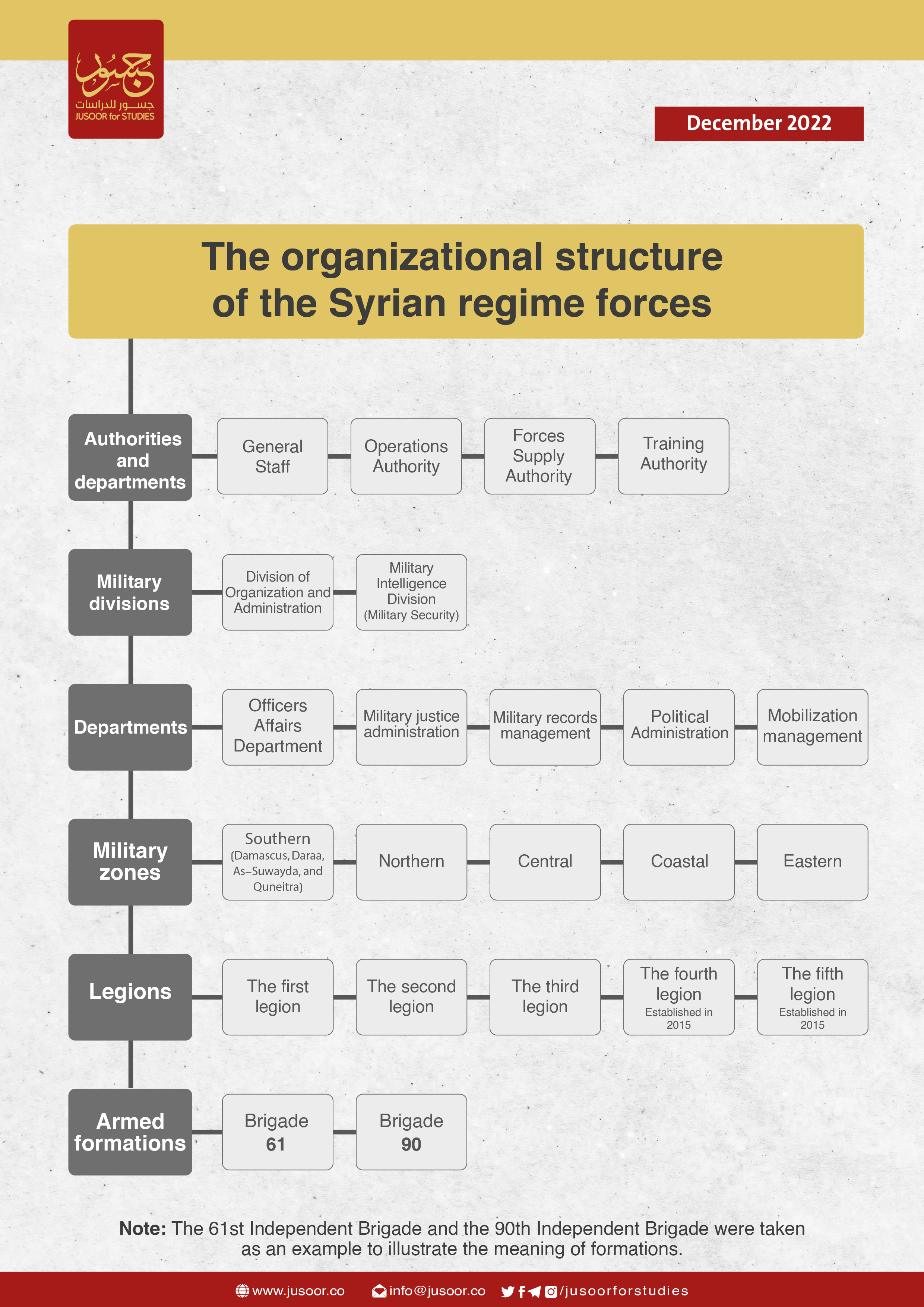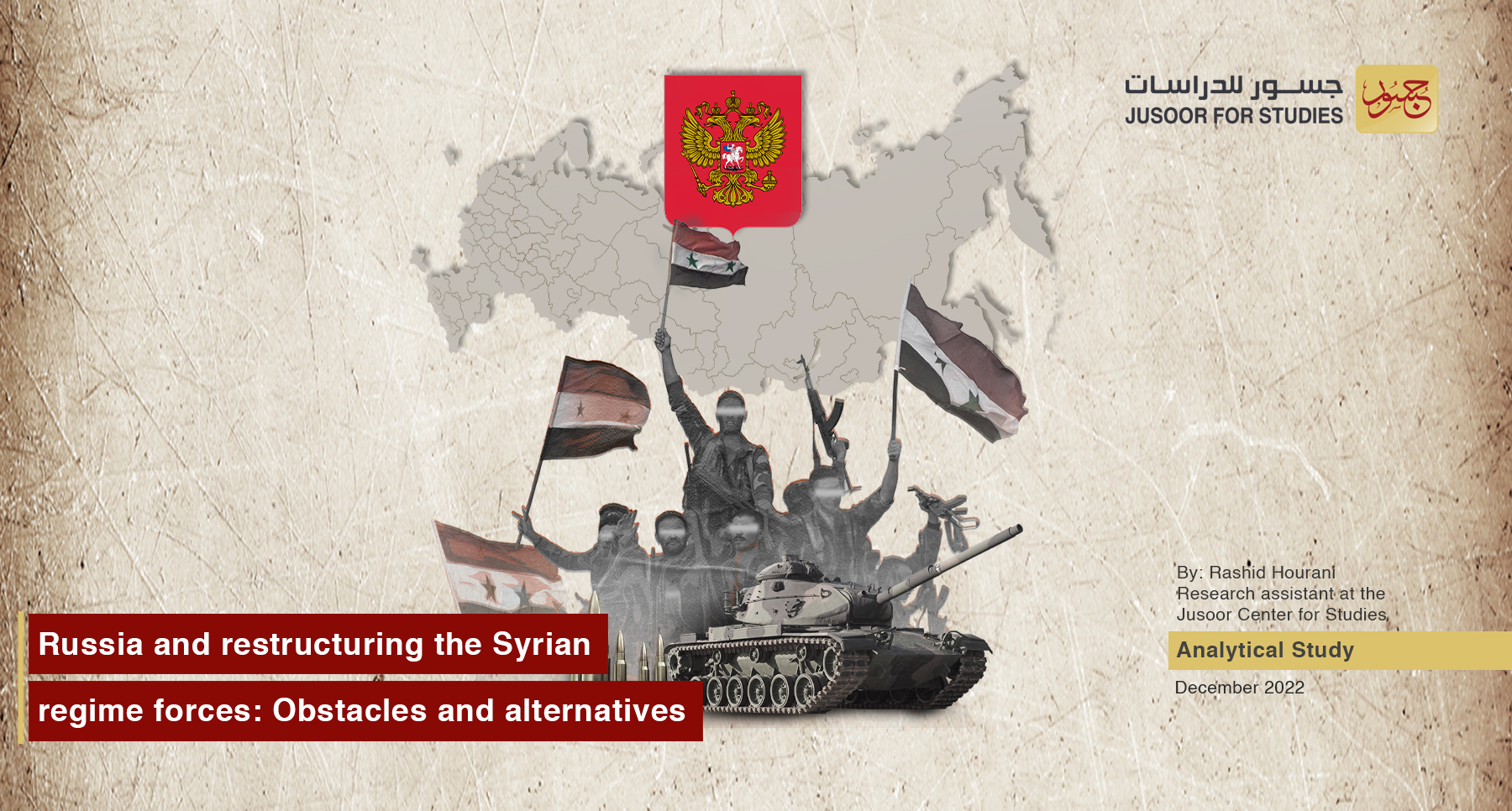Russia and restructuring the Syrian regime forces: Obstacles and alternatives
The Syrian regime attached great importance to the army. It took the slogan “No sound is louder than the battle's one” as an instrument for harnessing all the material and human capabilities to serve the effectiveness of the army's operations in order to maintain its control over the country's areas. The regime also works hard to take advantage of the above-mentioned slogan to serve its regional ambitions and its eagerness to remain present in all conflicts plaguing the region. Moreover, the regime in Damascus desperately tried to carve out a special place for itself amid the competing Western interests over winning influence and geopolitical gains.
The use of excessive violence by the Syrian regime's army in confronting the peaceful protests in 2011 undermined the already troubled public confidence in the military forces. This is because of the widespread corruption the regime's military establishment suffers from. As a result, Syrians of all classes and affiliations have suffered from such a corrupted institution, which pushed them to revolt against a regime as such and overthrow this poor institution, in the hope that they can build an institution based on national foundations far from sectarianism and politicization.
The study examines the nature of this institution and the mechanisms used by the regime to adapt it. In addition, This paper sheds light on the consequences of the regime’s military institution, from a deep collapse at all professional, ethical, and administrative levels, before the start of the direct Russian military intervention in late 2015. It also highlights the messages that were sent by issuing the amnesty decrees by the regime before and after the Russian military intervention.
Russia took the lead in the task of restructuring the regime forces; because Moscow is fully aware of the low military efficiency and low morale, from which these forces suffer. The large Russian presence in the military establishment of the regime at the level of armament, the presence of Russian military experts within the regime’s army, in addition to Russia's quest to be a global superpower constituted a catalyst for implementing such a task.
Russia faced severe difficulties in restructuring the regime's forces, due to the obstacles Moscow could not bear, either financially or in terms of training. This prompted the Kremlin to compensate by military build-up inside the regime’s military establishment in addition to the Russian political presence to serve its geopolitical interests and objectives.
After all, the importance of this study lies in the fact that it sheds light on the nature of the military institution controlled by the regime. It also highlights how such an establishment lost, due to the conflict, all the criteria that characterize any military institution in the world. Moreover, this study shows how Russia plays a role in preserving this institution in a nominal manner for political purposes only.










